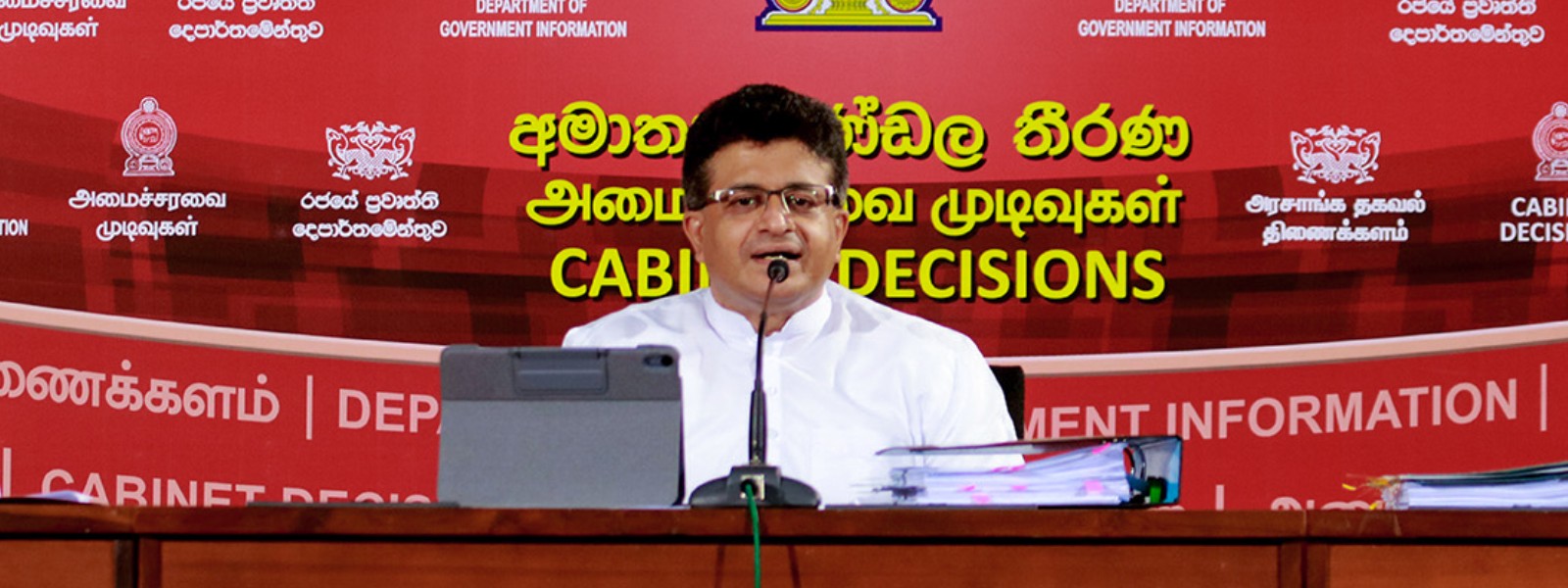.webp)

Tax exemptions given to attract investors to Port City ; Gammanpila
Colombo (News 1st); The government decided to award tax exemptions with regard to the Colombo Port City, to attract investments and business opportunities, said Joint-Cabinet Spokesperson & Minister, Udaya Gammanpila on Tuesday (30).
"Tax exemptions will be awarded as per the provisions of the Strategic Development Projects Act No.14 of 2008," he said. The Minister went on to note that the Colombo Port City will not pose a threat to Sri Lanka's sovereignty adding although the Colombo Port City is under a separate governing body, the power to appoint the said body will be vested with the President. The spokesperson added that the Port City will purely be handled by a governing body called the Port City commission appointed by the President himself adding the members would be those elected by the people. "The areas identified by the Greater Colombo Economic Commission of 1978 were proposed as Investment Zones," he said. Colombo Port City Economic Commission According to the Port Colombo Port City Economic Commission Bill, a President-appointed-Commission named the Colombo Port City Economic Commission will be established for the administration, regulation, and control of, all matters connected with businesses and other operations of the Colombo Port City. According to the bill recently produced to Parliament, the Colombo Port City Economic Commission is entrusted with the administrative duties of this Special Economic Zone. According to the bill, the Commission shall consist of not less than five members and not more than seven members and shall be appointed by the President. The Commission shall have its own Fund and all sums of money as may be received by the Commission by way of fees or charges imposed by the Commission will be credited to this fund. The designation of businesses as a Business of Strategic Importance and for the granting of exemptions or incentives to such business will only take place after the Cabinet of Ministers approved the proposal forwarded to the President or the subject Minister by the Colombo Port City Economic Commission. The bill further notes the Commission may permit an authorized person to engage in business from a designated location in Sri Lanka, outside the Area of Authority of the Colombo Port City, as for a period not exceeding five years from the date of commencement of this Act. It adds such business shall, for such period of five years be entitled to all the privileges accorded to, and be deemed for all purposes to be a business situated within and engaged in business, in and from, the Colombo Port City. The Colombo Port City Economic Commission Bill goes on to note that seven enactments shall have no application within the area of authority of the Colombo Port City and they are; 1. The Urban Development Authority Act, No. 41 of 1978 2. The Municipal Council Ordinance (Chapter 252) 3. The Commercial Mediation Centre of Sri Lanka Act, No. 44 of 2000 4. The Town and Country Planning Ordinance (Chapter 269) 5. The Strategic Development Projects Act, No. 14 of 2008 6. Public Contracts Act, No. 3 of 1987 7. The Board of Investment of Sri Lanka Law, No. 4 of 1978 It further goes on to note that exemptions and incentives may be granted from or under the following enactments; 1. The Inland Revenue Act, No. 24 of 2017 2. The Value Added Tax Act, No. 14 of 2002 3. The Finance Act, No. 11 of 2002 4. The Finance Act, No. 5 of 2005 5. The Excise (Special Provisions) Act, No. 13 of 1989 6. The Debit Tax Act, No. 16 of 2002 7. The Customs Ordinance (Chapter 235) 8. The Ports and Airports Development Levy Act, No. 18 of 2011 9. The Sri Lanka Export Development Act, No. 40 of 1979 10. The Betting and Gaming Levy Act, No. 40 of 1988 11. Termination of Employment of Workmen (Special Provisions) Act, No. 45 of 1971 12. The Entertainment Tax Ordinance (Chapter 267) 13. The Foreign Exchange Act, No. 12 of 2017 14. Casino Business (Regulation) Act, No. 17 of 2010 Accordingly, the period of validity of such exemptions or incentives granted in terms of this section, shall not exceed forty years.Other Articles
Featured News





.png )

-786108_550x300.jpg)
-786102_550x300.jpg)





-785316_550x300.jpg)



















.gif)